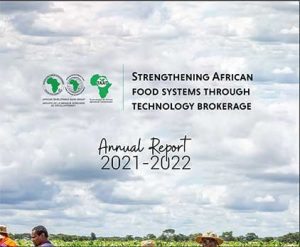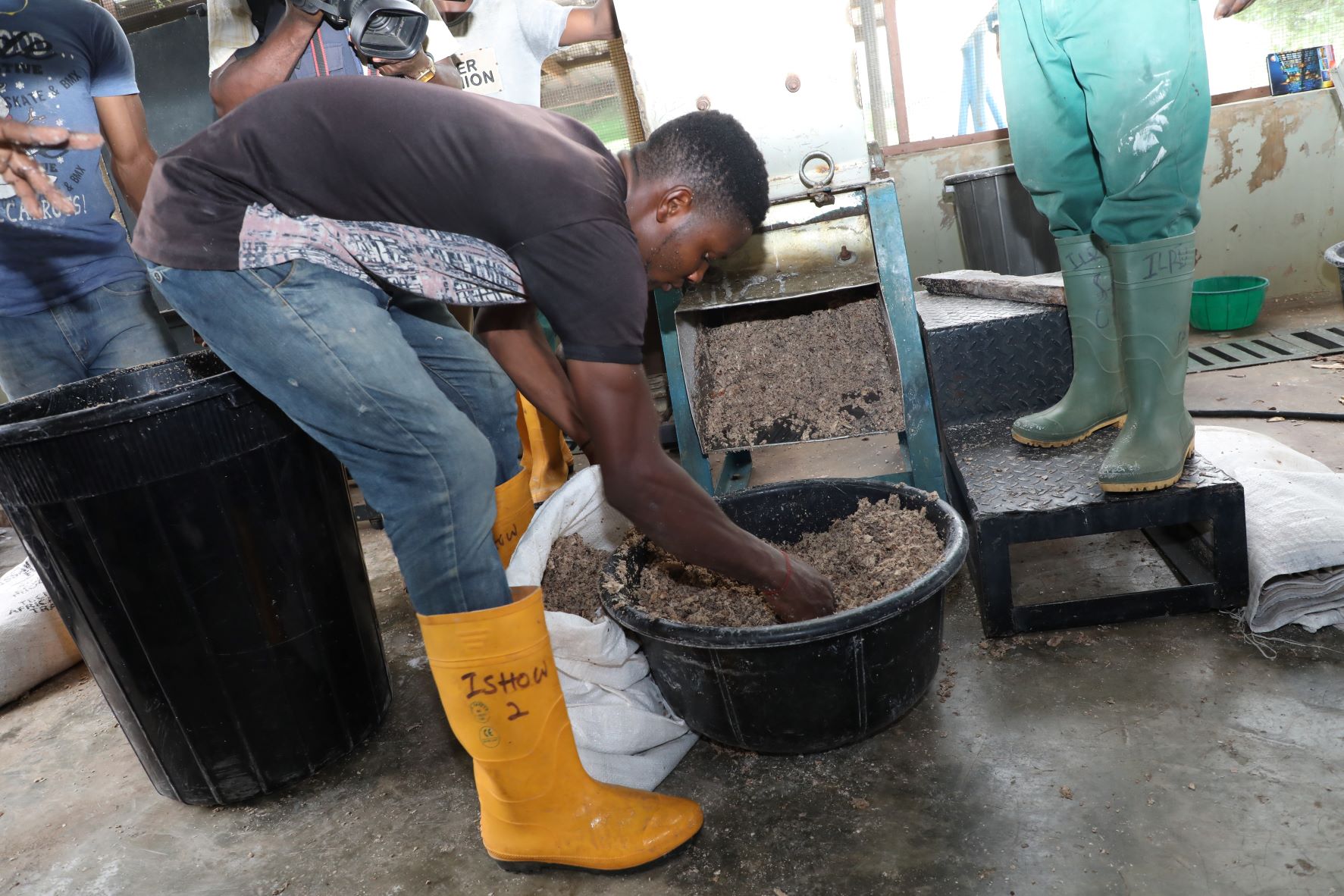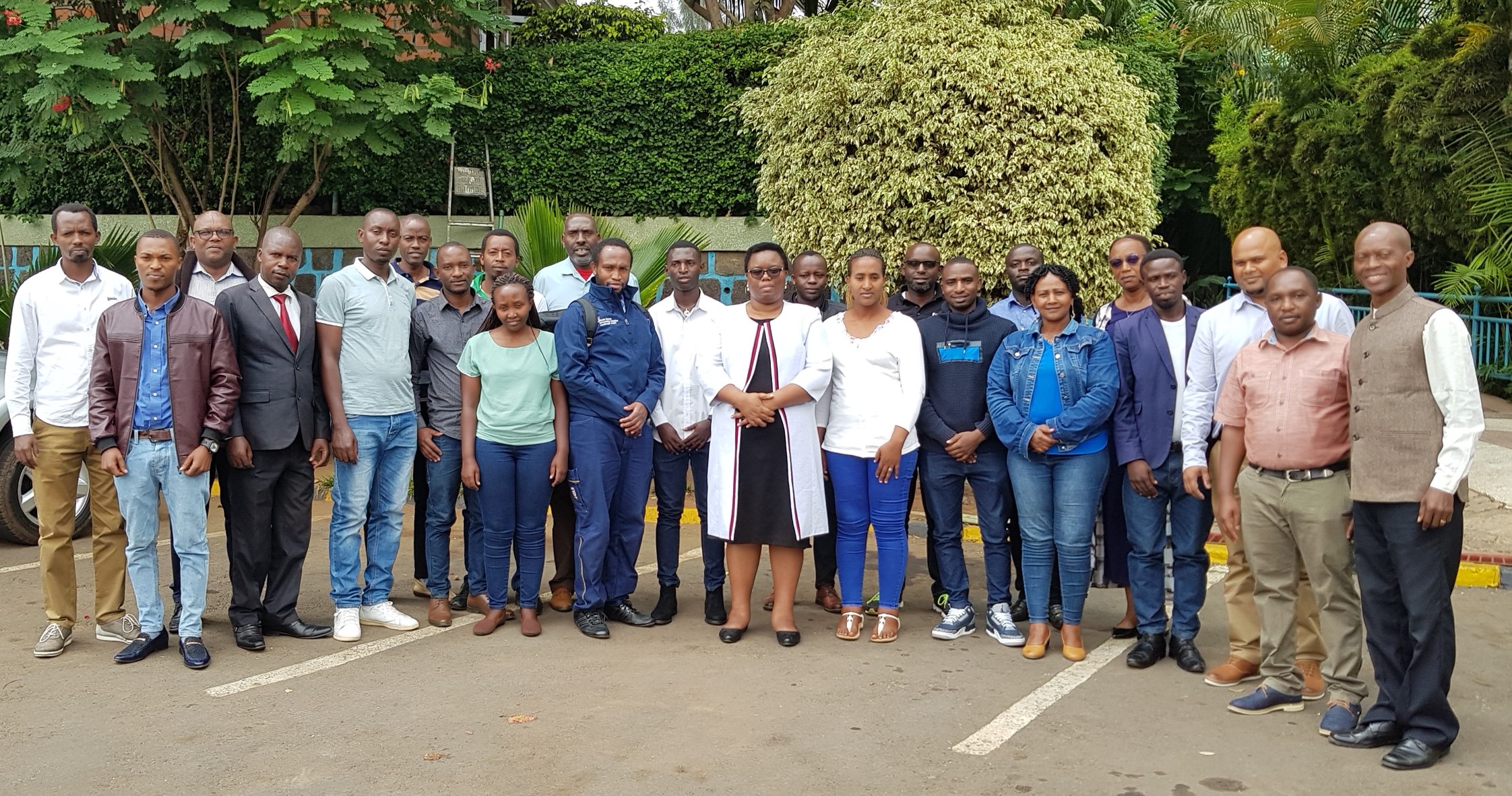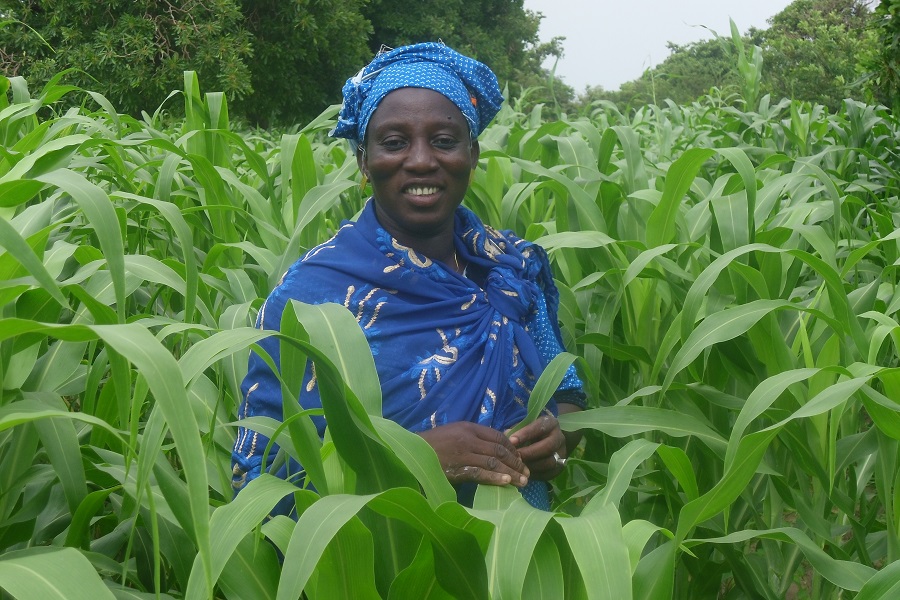Catalogue de la Boîte à Outils des Technologies sur la Volaille
Pages: 62
Doc type: PDF
Size: 8.77MB
Ce catalogue décrit une série de technologies avicoles éprouvées qui permettent d’accroître la productivité des entreprises animales en Afrique. Il a été élaboré dans le cadre d’une collaboration entre le programme Technologies pour la transformation de l’agriculture africaine (TAAT) de la Banque africaine de développement et le Compact pour l’élevage du petit bétail coordonné par l’Institut international de recherche sur l’élevage (ILRI).
Agricultural Transformation Through Small Ruminants: An Evaluation of TAAT Livestock Compact Interventions in Ethiopia
Pages: 16
Doc type: PDF
Size: 7 MB

2021 – 2022 TAAT Annual Report
Pages: 48
Doc type: pdf
Size: 31MB
This report is a production of the TAAT Program Management Unit and the TAAT
Clearinghouse. The Editors received contributions in stories and photos from TAAT Compact
Coordinators. The TAAT Communications Unit provided complimentary photographs
included in this report.
Sheep Fattening and Fodder-soil in Ethiopia – Outcome Case Study Report
Pages: 38
Doc type: PDF
Size: 2.1MB
An Outcome Case Study Report
Poultry Technology Toolkit Catalogue
Pages: 32
Doc type: PDF
Size: 1.42MB
This catalogue describes a suite of proven poultry technologies that advance increased productivity of animal enterprise in Africa. It was developed through a collaborative effort between the Technologies for African Agricultural Transformation (TAAT) Program of the African Development Bank and its Small Livestock Compact coordinated by the International Livestock Research Institute (ILRI).
Enhancing Commercialization of Africa’s Agricultural Research Products Livestock and High Iron Bean (HIB) Value chains
Pages: 5
Doc type: PDF
Size: 1.5MB
TAAT CDTO TECHNICAL WEBINAR SERIES
On August 12, 2020, the Forum for Agricultural Research in Africa (FARA), Africa Forum for Agricultural Advisory Services (AFAAS), International Livestock Research Institute (ILRI) and International Center for Tropical Agriculture (CIAT) convened the third TAAT CDTO technical webinar of a series of 6 webinars. These webinars are organized under the Technologies for African Agricultural Transformation (TAAT) Program of the Feed Africa initiative funded by the African Development Bank (AfDB).
TAAT engages Rwanda on the production of high-quality livestock feed from cassava peels – Taat-Africa
Pages:
Doc type:
Size:

The availability of affordable, good quality and quantity of feed for livestock and fish, produced with a minimal negative footprint on the food chain and the environment, remains a critical factor in livestock production.
With feed constituting nearly 70% of the cost of livestock production, efficient feeding systems stimulate high productivity and food security, leading to enhanced livelihoods for livestock producers. Hence the lack of affordable and adequate feed represents a significant constraint to smallholder competitiveness and the overall profitability of livestock and fish production systems.
The Technologies for African Agricultural Transformation (TAAT) programme addresses this critical factor by facilitating better access to improved feed technology, micro-finance and markets for livestock farmers, including women and youth, to achieve nutrition security and improved household income.
The programme is scaling up the adoption of High-Quality Cassava Peels (HQCP) technology across the continent through training programmes for farmers and extension agents, engagements with public and private sectors for a conducive policy framework and market incentivisation for the technology.
One of such engagements is currently underway in Kigali, the Rwandan capital, where TAAT, in partnership with the Rwanda Agriculture and Animal Resources Development Board and the International Institute of Tropical Agriculture (IITA), is facilitating the training of cassava processors, feed producers, farmer field school facilitators & cooperatives on the transformation of cassava peels into high-quality livestock feed.
The training, which began on the 29th of August 2022, seeks to increase the awareness of the HQCP’s potential to increase the income of cassava farmers through increased access to cassava peel processing technology.
The three-day session equally provides the opportunity for National Agricultural Research and Extension Systems (NARES) staff and private sector entrepreneurs in Rwanda to acquire the skills in transforming cassava peels into good quality livestock feed. TAAT seeks to scale up investment in HQCP as a cost-competitive alternative to maize and a source of energy for livestock feed while demonstrating the HQCP technology’s operationality through training trainers and entrepreneurs.

Sponsored by the African Development Bank as part of its Feed Africa Initiative, TAAT aims to double the productivity of crops, livestock and fisheries by making proven technologies available to more than 40 million agricultural producers by 2025. This will produce an additional 120 million tonnes of food and lift 130 million people out of poverty.
Dr Adeniyi Adediran, TAAT’s lead facilitator at the session, disclosed that processing cassava into food requires peeling the cassava root, which generates about 25% of waste peels, or the equivalent of more than 45 million tonnes of waste annually in Africa.
“Transforming this waste into livestock feed through the High-Quality Cassava Peels (HQCP) mash innovation has the potential to turn approximately 45 million tons of wet peels into 11.2 million tons of feed ingredients, capable of replacing about 7.3 million tons of imported maize, valued at over $3.036 million,” Dr Adediran added.
The HQCP mash innovation, which transforms cassava peel mash into animal feed, was an outcome of a multi-centre CGIAR collaboration by the International Livestock Research Institute (ILRI), the International Institute of Tropical Agriculture (IITA) and the International Potato Centre (CIP).
The process of transforming the cassava peels into HQCP involves sorting to remove stumps which could potentially damage the grinding machine, grating to produce a wet paste of about 40-50% dry matter, pressing to reduce the moisture content, pulverising to separate the resulting paste into coarse and fine wet feed, which is suitable for feeding cattle, sheep and goats, and then drying or toasting to about 10% – 12% dry matter.
African Development Bank approves phase II of TAAT programme – Taat-Africa
Pages:
Doc type:
Size:

The African Development Bank has approved the commencement of phase two of the Technologies for African Agricultural Transformation (TAAT) programme. The Bank Group’s Board of Directors, on Friday, 15 July 2022, approved the release of an additional $27.41 million to implement Phase II of the programme.
At the 15 August 2022 signing of the protocol of agreement between the bank and the executing agency for TAAT, the International Institute of Tropical Agriculture (IITA), the bank lauded the giant strides recorded under TAAT-I, which has galvanised the investment of more than $800 million in agricultural value chain projects in 21 African countries.
It has also mobilised $500 million in co-financing from the World Bank, the International Fund for Agricultural Development (IFAD), the Islamic Development Bank (IsDB), the Global Environment Facility (GEF) and other organizations, such as the Bill & Melinda Gates Foundation that support the TAAT Clearinghouse operations.
“The Bank is well positioned to harness the power of the science, knowledge and innovation needed to catalyse Africa’s agricultural transformation through this investment. The Bank already has extensive experience in agricultural development assistance in Africa, and this additional funding will help us to consolidate the achievements of TAAT-I,” said Beth Dunford, African Development Bank Group Vice President for Agriculture and Human and Social Development.
Speaking on behalf of the IITA Director General, Dr Kenton Dashiell, the institute’s Deputy Director General, partnerships for delivery, commended the bank’s commitment to transforming African agriculture through its Feed Africa strategy as well as the trust reposed in the consortium of agricultural research institutions led by the IITA to implement the laudable objective of transforming African agriculture.
Dr Dashiell assured the bank that TAAT-II would work closely with African countries to support the implementation of the $1.5-billion African Emergency Food Production Facility. This facility was set up by the Bank in May 2022 to help African countries obtain additional resources for agricultural production to guard against an impending food crisis due to the war in Ukraine.
The facility is expected to provide certified seeds, fertilizers, extension services and post-harvest management technologies to 20 million farmers. It is expected to produce an additional 38 million tonnes of food (11 million tonnes of wheat, 18 million tonnes of maize, 6 million tonnes of rice and 3 million tonnes of soybeans) worth $12 billion over the next two years.
It would be recalled that countries that benefited from TAAT-I have substantially increased production and commercialization, raised farmers’ incomes and created job opportunities for women and youth. TAAT-I provided over 61,000 metric tons of heat-tolerant wheat seed varieties to Ethiopia. The seeds have enabled Ethiopia to boost its cultivated areas of wheat production from 50,000 hectares in 2018 to 167,000 hectares in 2021 and to 400,000 hectares in 2022.
In addition, Ethiopia has not imported wheat this year and is now producing wheat on 650,000 hectares and is on track to cultivating 2 million hectares next year. The country harvested 2.6 million tons and plans to begin exporting to Kenya and Djibouti next year.
Drawing largely on the results of TAAT-I, TAAT-II will strengthen national and regional seed-production systems to provide farmers with sufficient climate-resilient seeds, using a market-based model and helping local private sectors spread technologies and services (seeds, fertilisers, extension) on a larger scale in villages.
TAAT-II incorporates a nutrition compact (soybeans, vegetables, orange-flesh sweet potatoes and high iron beans) to develop nutrient-rich commodities, raise awareness and improve the adoption of foods with high nutritional values.
Established in 2018 as a key flagship programme of the Bank’s Feed Africa strategy (2016 – 2050), TAAT is a continent-wide initiative designed to boost agricultural productivity by rapidly delivering proven technologies to millions of farmers.
TAAT seeks to double crop, livestock, and fish productivity by expanding access to productivity-increasing technologies to more than 40 million smallholder farmers across Africa by 2025 and generating an additional 120 million metric tons.
TAAT Receives Gold Stevie® Award in 2021 International Business Awards® – Taat-Africa
Pages:
Doc type:
Size:

The African Development Bank received a first-place “Gold Stevie” at the 18th Annual International Business Awards virtual event, in recognition of the institution’s digital campaign showcasing its Technologies for African Agricultural Transformation (TAAT) initiative.
The International Business Awards honoured the Bank in the Best Video – Documentary category during an online ceremony Wednesday. TAAT’s wheat compact video led a series of clips demonstrating how TAAT is delivering agricultural technologies to help 11 million smallholder farmers across 30 African countries increase productivity and adapt to climate change.
“The Gold Stevie recognition solidifies the African Development Bank’s commitment to balance the narrative about the continent, by sharing success stories about efforts to feed Africa and improve the quality of life for the people of Africa,” said Dr. Beth Dunford, the African Development Bank’s Vice President for Agriculture, Human and Social Development.
“We’re scaling up TAAT through our new ‘Mission 1 For 200’ financing facility that aims to mobilize $1 billion to feed 200 million Africans by 2025 – there are more stories to be told,” Dunford added.
The Bank broadcast the TAAT video series in April during the 2021 High-level Dialogue on Feeding Africa, which hosted more than a dozen heads of state, global leaders, as well as thousands of online participants.
The 2021 International Business Awards, the world’s only all-encompassing business awards competition, drew more than 3,700 nominations from 65 nations. Wednesday’s virtual awards ceremony coincided with the close of the Tokyo Nutrition for Growth Summit, which explored the global challenge of malnutrition.
“As world leaders return from the Tokyo Nutrition for Growth Summit energized to accelerate progress on defeating malnutrition, we share this honour with our TAAT implementing and regional member country government partners working to produce more – and more nutritious – foods,” said Martin Fregene, the Bank’s Director for Agriculture and Agro-Industry.
Stevie Award winners were determined by the average scores of more than 260 executives worldwide who participated in the judging process from June through early August.
This 18th annual International Business Awards recognize outstanding organizations and highlight their positive contributions globally. Last year, the Bank earned a Gold Stevie for its 2019 Annual Report in the publication category and bronze for the Report’s companion video.
This year’s other award winners include Google, IBM, Yapi Kredi, DHL Express Worldwide, Dubai Municipality and Tata Consultancy Services.